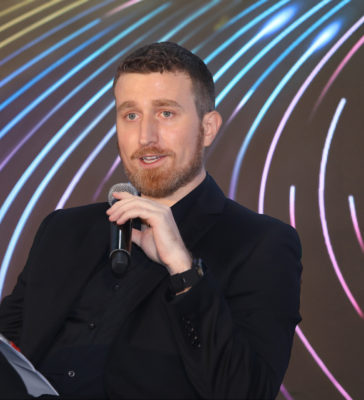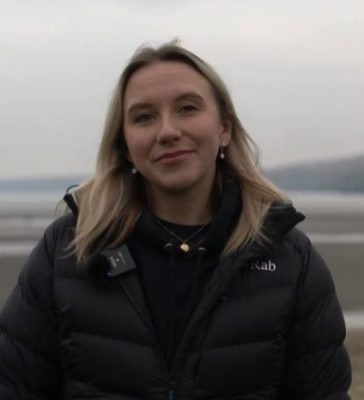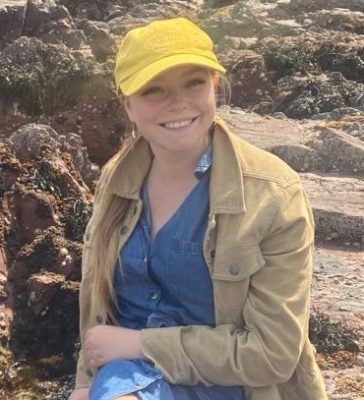
Samuel Inglis
Current Employer/Organisation Name
ADM Capital Foundation
What have you been doing since leaving Exeter, and what are you doing now?
Since leaving Exeter, I have worn many hats and had many adventures! I returned to Hong Kong in 2013, full of vim and vigour in the wake of graduating! Within a year, a friend and I had set up an expedition company for young Hongkongers to have the experience of engaging in exciting and unique adventures. We ultimately took a team of 15 youths on a 23-day odyssey through the borderlands of India and Tibet, retracing the footsteps of German explorer and intrepid 18th Century Tibetologist A.H. Francke along a relict tributary of the Silk Road. Our greatest accomplishment was the successful ascension of the 18,300ft Parangla Pass, making us the youngest expedition team to achieve the feat! Feeling the urge to take action on climate change and raise public awareness, I was enlisted to coordinate Hong Kong’s first ‘People’s Climate March’! We were the only city in China to participate that year. I next wound up in a publishing house, managing and editing a diverse array of maps spanning SE Asia and books on the development of modern Myanmar and on the histories of Hiroshima and Nagasaki. I was then invited to join ‘The People’s Pilgrimage’ by former UN Chief Climate Negotiator for the Philippines Yeb Saño. We embarked on a 2 month, 1500km journey from Rome, Italy to Paris, France – striving to connect the call for climate action issued by Pope Francis’ encyclical Laudato si’ to the UNFCCC talks which ultimately led to the significant Paris Agreement. I subsequently worked on a study exploring the historic evolution of Hong Kong’s climate system, examining trends in extreme events and providing guidance on how climate change would potential impact the operations of a major gas company. This included a review of attitudes within the company and the impacts of a seminar series on raising awareness and preparedness within the organisation. I had brief stints writing articles and working on social media campaigns for Yale University’s Program on Climate Change Communication and for Columbia University’s GlacierHub and The Mountain Institute. I was then recruited to work on a report on water security in Hong Kong – ‘The Illusion of Plenty’ – getting to grips with the many facets of how the city manages its supply, the relevant policies, infrastructure challenges and the opportunities for reform. I next fell into the wildlife space – where I have since spent much of the last few years – working on establishing a comprehensive understanding of the scale, complexities, impacts, etc. of the legal and illegal trades in living organisms through Hong Kong. I have co-authored reports in our ‘Trading in Extinction’ series, delving into the illegal trade, and ‘Wild, Threatened, Farmed: Hong Kong’s Invisible Pets,’ which focused on the exotic pet trade. Prior to COVID-19, I worked in Nepal for the Cryosphere Programme of the International Centre for Integrated Mountain Development (ICIMOD), taking the reigns of a team of 25 right as the pandemic hit. I was charged with maintaining operations, managing finances, developing lines of research, establishing and furthering strategic partnerships across the eight nations of the Hindu Kush Himalaya, overseeing dozens of projects. I returned to Hong Kong in 2020, re-engaging in my work on the wildlife trade.
Why did you choose this career? And what do you enjoy most about your work?
Environmental issues and geography have been a passion of mine since I was at least 12, when I had the absolute privilege of travelling across the Indian Himalayas with my father. We spent 6-weeks in the remote reaches of Ladakh and Zanskar, meeting people on the front lines of climate change, ranging from homesteaders who’d farmed the lands for generations to roving monks who traipsed back and forth across the vast landscape. All spoke of the impacts that they were already experiencing, the hardships and their concerns for the future. Walking through a living classroom, I learned about people, places, timescales, geology, geography, religion, the rise and fall of civilisations, the toll of environmental degradation, anthropological impacts, and so much more. After that experience, it was clear that I needed to learn more about the planet and our interactions with it. I pursued a BSc in Physical Geography and then an MSc in Climate Change & Risk Management, with a focus on glaciology and climate change. I was determined to work on environmental issues in Asia. From Hong Kong, I naturally ended up working on a broader array of environmental issues and developing a passion and aptitude for policy change and campaigning. I’ve largely applied this in the wildlife space, an area I accidentally fell into, but have found hugely engaging and rewarding. As our understanding of the planetary crises we face become better understood, I find that I’m placed at a critical juncture – with insights into the comingled climate and biodiversity crises. Being able to contribute to research, campaigns and policy engagement actively and knowing I’m playing a critical role in building knowledge, raising awareness and driving positive reforms have definitely been the highlights of my work since 2016.
Please tell us if you were a member of any societies, groups or sports clubs?
I was a member of the Tang Soo Do club, serving as the Chairman in 2011-12 and winning a Gold medal in sparring at the 2012 EMTF British National Championships and played for the Camborne School of Mines Rugby team. I also served on the Geography Employability Committee (Physical Geography Coordinator) in 2012 and subsequently the Geography Employability Committee (Masters Representative) and Student Staff Liaison Committee (MSc Climate Change & Risk Management Representative) in 2013.
What did you enjoy most about your programme and what was the biggest highlight?
I was drawn like a moth to a flame towards anything and everything glaciological, meaning I was particularly appreciative of the modules led by Professor Stephan Harrison, Professor Chris Caseldine and Dr Kate Smith. I adored learning about glacial lakes, natural hazards, geomorphology, ice ages and all things climate. We also had modules on communicating science, which have served me well in the decade since. I found the field trip to Iceland especially illuminating, once again being in a living classroom alongside some of the world’s most accomplished researchers on that very same landscape. Being able to talk about and understand every facet of the fire and ice that had forged the island, the processes that continued to shape it and the science that allowed us to demystify it all, was tremendous. It was also a great opportunity to socialise with our professors, tutors and classmates in a new way, finding our common passions and motivations.
What did you enjoy most about studying here?
The long-lasting friendships I was able to forge have remained with me in the years since graduation – both with fellow graduates and the teaching staff. I’ve been gladdened to continue to speak regularly with my university friends, even as we’ve scattered around the world, and continued to work on academic literature with former professors.
Why did you choose to study at Exeter?
When I was touring universities, I had the pleasure of speaking with a professor one-on-one. We had exchanged correspondence in the months before. I (naively) sent some essays from secondary school and he generously reciprocated with his peer-reviewed literature – which I rapidly chewed through! When we finally met in person, he asked me if I wanted to study somewhere where the professors were simply reading papers or were actually the ones getting out into the field and writing them. I’ve long recalled that comment and remember being thrilled at the prospect of learning from the “do-ers.” I’ve endeavoured to carry that philosophy of being active and putting knowledge into practice into all the roles I’ve held since.
What skills and experiences have been most useful for your career?
The research and analytical skills developed during my time at Exeter have been of paramount importance. The ability to delve into super specialised literature and dig out the diamonds in the rough has been essential in my career. Linked to this, the ability to translate technical science into more intelligible language for non-specialist audiences – tailoring messaging and information to the public, policymakers or government personnel – has also been critical to the success of all the campaigns I’ve been involved in.
What advice would you give to a current student who wishes to pursue your career?
The environmental space is not for the lighthearted. It requires grit, determination, passion and huge reservoirs of personal motivation. The pay is all too often lower than attractive starter packages promised by the private sector. A lot of time, effort (often volunteered) is required to rack up the relevant experience and earn your stripes. The role you want is rarely the one you get, so every opportunity must be seized and acknowledge for the learning experience it is. You’ll likely spend the first decade trailing fellow graduates who seized the lucrative packages, but (in my experience) job satisfaction by mid-career will be far higher for those who pick a role for passion over pay. You’ll often gain tremendous amounts of varied experience, trying your hand at all sort of tasks, projects and roles, making you a far better-rounded employee down the line.
What are your plans for the future?
Watch this space.

